Meaning of Meshach in the Bible: Faith in the Fire
Meshach, originally named Mishael, is a central figure in the Book of Daniel, symbolizing steadfast faith and divine deliverance during the Babylonian exile. His name, derived from Akkadian roots, underscores the cultural syncretism experienced by the exiles, suggesting meanings like ‘guest’ or ‘who is what Aku is?’
When Meshach refuses to worship King Nebuchadnezzar’s golden idol, he faces the trial of the fiery furnace but emerges unscathed, demonstrating the miraculous intervention of God.
This narrative highlights the themes of faith under pressure and the supremacy of divine authority. Exploring further reveals deeper aspects of his symbolic significance.

Meaning of Meshach in the Bible: Identity, Trials, and Faithfulness
| Aspect | Description |
|---|---|
| Biblical Reference | Found in the Book of Daniel (Daniel 1–3) |
| Original Name | Mishael – changed to Meshach by Babylonian officials |
| Meaning of Meshach | Likely means “Who is what Aku is?” referring to a Babylonian god |
| Spiritual Significance | Represents unwavering faith in God under persecution |
| Key Story | Survived the fiery furnace with Shadrach and Abednego (Daniel 3) |
| Faith Lesson | Demonstrates God’s protection and rewards for steadfast belief |
Etymology of Meshach
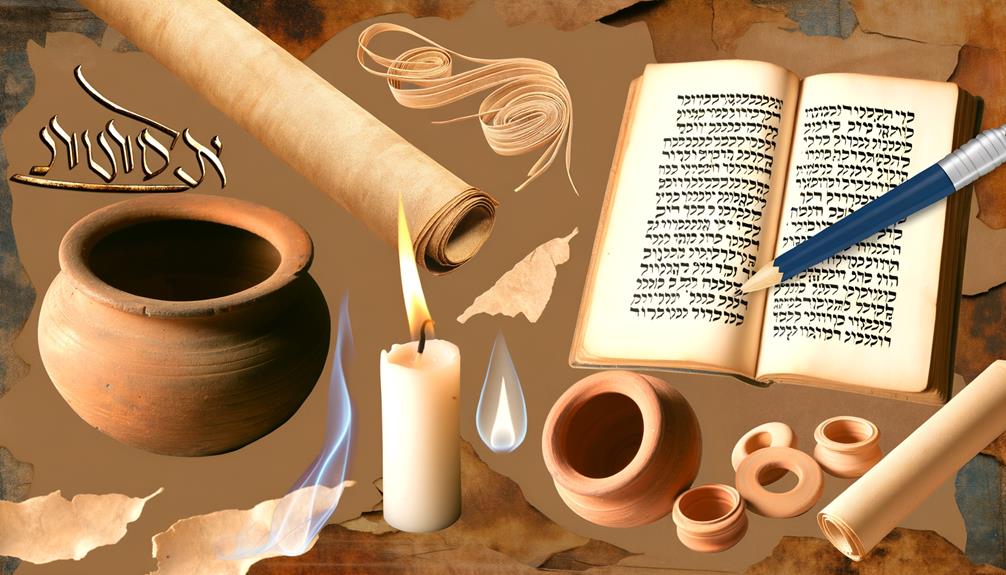
The etymology of the name Meshach traces its origins to the Akkadian language, reflecting the profound intercultural influences present during the Babylonian exile.
Akkadian, a Semitic language spoken in ancient Mesopotamia, provides the linguistic foundation for Meshach, suggesting connections to meanings such as ‘guest’ or ‘who is what Aku is?’ Here, Aku refers to a Babylonian moon god, illustrating the syncretism between Hebrew and Mesopotamian cultures.
This nomenclature transformation underscores the impact of Babylonian captivity on Hebrew identity and religious practices.
Historical Background
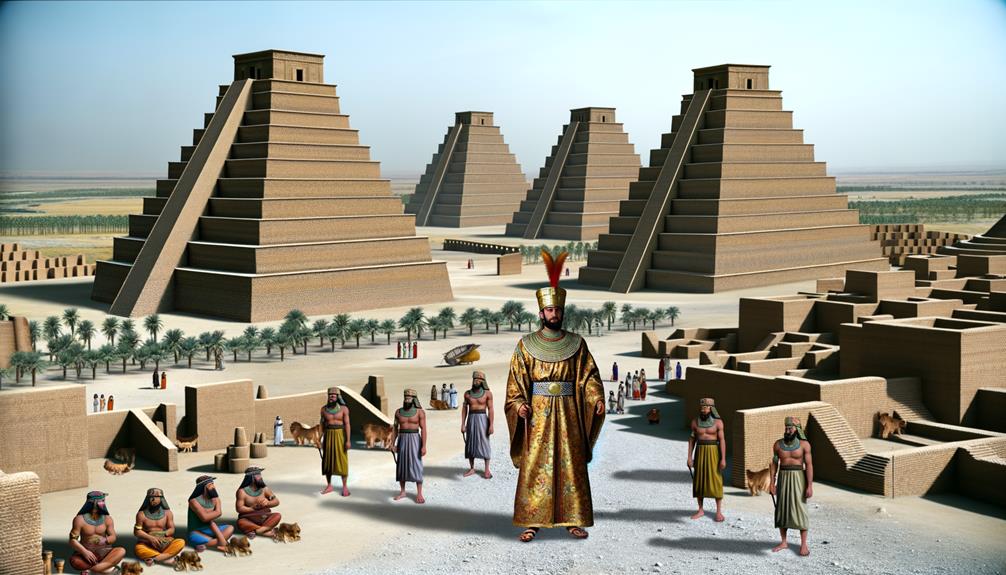
During the Babylonian exile, the historical context surrounding Meshach offers a profound lens through which to examine the cultural and religious transformations experienced by the Hebrew people. This era marks a significant epoch in Jewish history characterized by:
- Exile and Displacement: The forced relocation of the Hebrew people to Babylon.
- Cultural Assimilation: Adaptation to Babylonian customs while retaining Hebrew identity.
- Religious Syncretism: The blending and clashing of Babylonian and Hebrew religious practices.
- Political Subjugation: The imposition of Babylonian rule over the Hebrew exiles.
- Identity Crisis: Struggles to maintain Hebrew cultural and religious identity amidst Babylonian dominance.
Meshach in the Book of Daniel
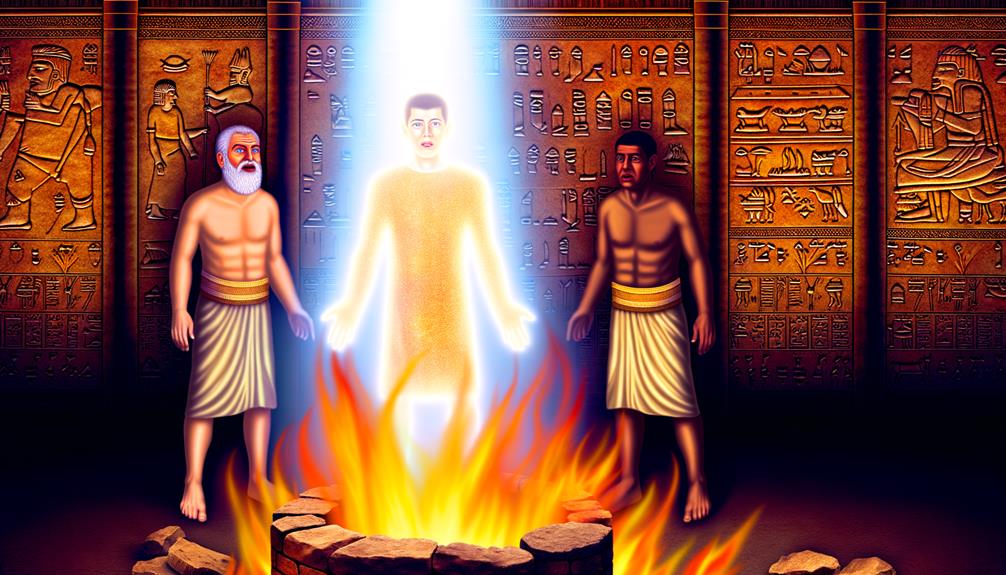
In the Book of Daniel, Meshach emerges as a pivotal figure whose experiences reflect the broader themes of faith, resilience, and divine intervention amidst the trials of Babylonian captivity.
Alongside his companions, Shadrach and Abednego, Meshach faces the ultimate test of allegiance to God when King Nebuchadnezzar demands worship of a golden image.
Defying the royal edict, they are cast into a fiery furnace, only to be miraculously preserved by divine intervention.
This narrative underscores Meshach’s steadfast faith and exemplifies the miraculous deliverance of those who remain loyal to their spiritual convictions.
Through Meshach’s ordeal, the Book of Daniel illustrates the power of unwavering belief in the face of persecution and the sovereign protection granted by divine providence.
Symbolism and Themes

The narrative of Meshach in the Book of Daniel is rich with symbolic elements that convey profound theological themes.
His ordeal in the fiery furnace exemplifies the motif of faith under pressure, illustrating the resilience of unwavering belief amidst persecution.
Additionally, the divine deliverance he experiences serves as a powerful emblem of God’s providential intervention and protection of the faithful.
Fiery Furnace Trial
The Fiery Furnace Trial of Meshach serves as a profound symbol of unwavering faith and divine deliverance amidst extreme adversity. This narrative, found in the Book of Daniel, encapsulates several key themes and symbolic elements:
- Divine Protection: The miraculous preservation from the flames signifies God’s protective power.
- Test of Faith: The trial exemplifies the steadfast faith required in the face of life-threatening persecution.
- Idolatry Rejection: Refusal to worship the golden image underscores the importance of fidelity to God.
- Divine Presence: The appearance of a fourth figure in the furnace symbolizes God’s direct intervention.
- Ultimate Vindication: The outcome demonstrates that divine justice prevails over human injustice.
These themes collectively highlight the enduring relevance of the story in religious and moral contexts.
Faith Under Pressure
Amidst intense trials, the story of Meshach epitomizes the profound interplay between faith and adversity, offering rich symbolic and thematic insights into spiritual resilience.
His unwavering commitment to his faith, even under the threat of death, underscores a powerful narrative of steadfastness.
Symbolically, Meshach’s ordeal in the fiery furnace represents the refiner’s fire, purifying and strengthening one’s spiritual convictions.
Thematically, his experience highlights the tension between earthly authority and divine allegiance, emphasizing the supremacy of spiritual integrity over temporal power.
This narrative invites a deeper reflection on the essence of true faith, suggesting that genuine belief is not merely professed in comfort but proven in the crucible of extreme challenges.
Divine Deliverance Symbolism
In the narrative of Meshach, divine deliverance serves as a profound symbol of God’s sovereignty and faithfulness amidst human trials. This theme resonates strongly within the context of the fiery furnace episode, highlighting God’s intervention in moments of extreme adversity.
Meshach’s story encapsulates several key elements that underscore divine deliverance:
- Sovereignty of God: Demonstrates God’s ultimate control over creation and circumstances.
- Faithfulness: Reflects God’s unwavering commitment to those who trust in Him.
- Protection: Illustrates divine shielding from harm in seemingly insurmountable situations.
- Witness: Acts as a confirmation to others about the power and reliability of God.
These themes collectively affirm the enduring relevance of divine deliverance.
Cultural Impact
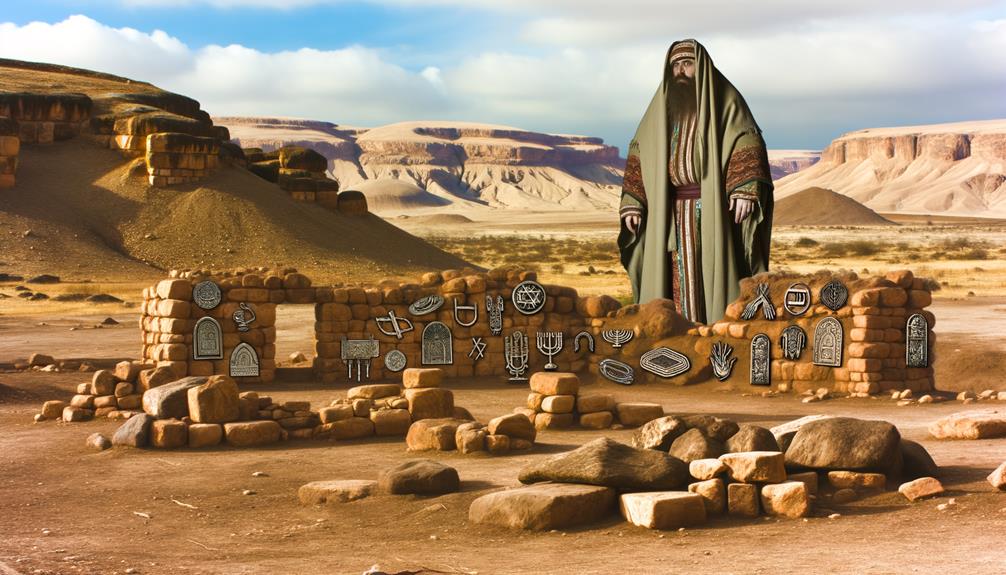
Frequently, the story of Meshach, alongside Shadrach and Abednego, has permeated various cultural narratives, symbolizing steadfast faith and divine deliverance.
This narrative has been referenced in literature, music, and art, portraying the trio’s unwavering commitment in the face of persecution. For instance, their story is invoked in African-American spirituals, where themes of liberation and resilience are paramount.
Additionally, cinematic adaptations often emphasize their miraculous survival, serving as an allegory for hope amidst adversity.
The cultural impact extends to educational curricula, where their story is used to illustrate moral and ethical principles.
Through these diverse mediums, the account of Meshach and his companions continues to resonate, highlighting the enduring relevance of ancient scriptural themes in contemporary society.
Lessons From Meshach
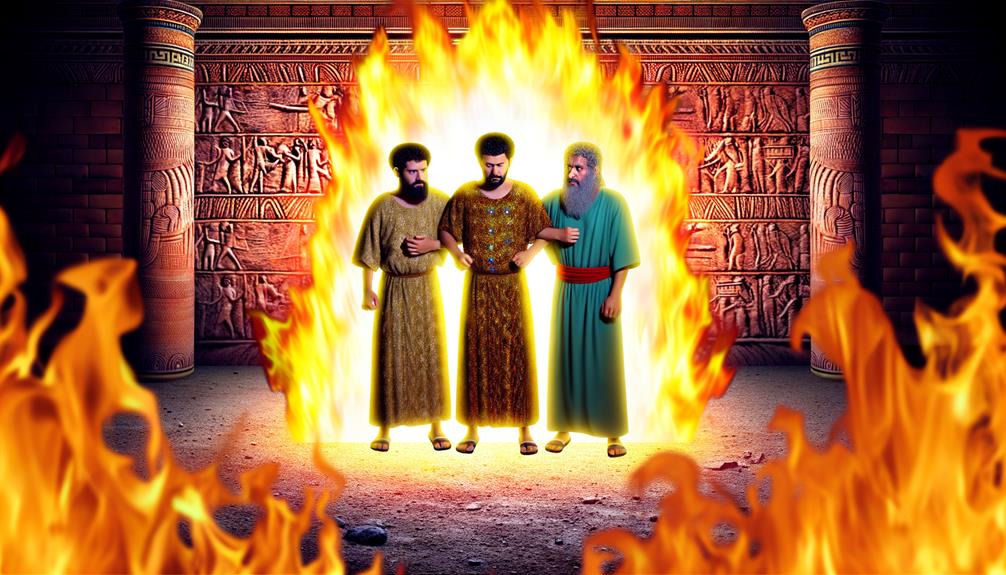
The story of Meshach offers profound lessons on faith, resilience, and the power of divine intervention in the face of seemingly insurmountable challenges. Meshach, along with Shadrach and Abednego, demonstrated unwavering devotion to God despite the threat of a fiery furnace.
Their narrative underscores several key lessons:
- Faith Under Pressure: Meshach’s steadfastness highlights the importance of maintaining faith even when facing severe adversity.
- Courage: His willingness to face death rather than compromise his beliefs is a demonstration of true courage.
- Divine Protection: The miraculous survival illustrates the protective power of divine intervention.
- Community Support: Standing with Shadrach and Abednego shows the strength found in communal faith.
This analysis provides a deeper understanding of Meshach’s enduring legacy.
Conclusion
Meshach’s narrative in the Book of Daniel serves as a beacon of unwavering faith and resilience amidst adversity.
The intersection of his historical context, symbolic significance, and cultural impact offers a rich tapestry for scholarly exploration.
The story of Meshach, like a lighthouse in a storm, illuminates key themes of divine loyalty and moral fortitude, leaving an indelible mark on theological discourse and cultural heritage.
Such lessons remain both timeless and profoundly instructive.






